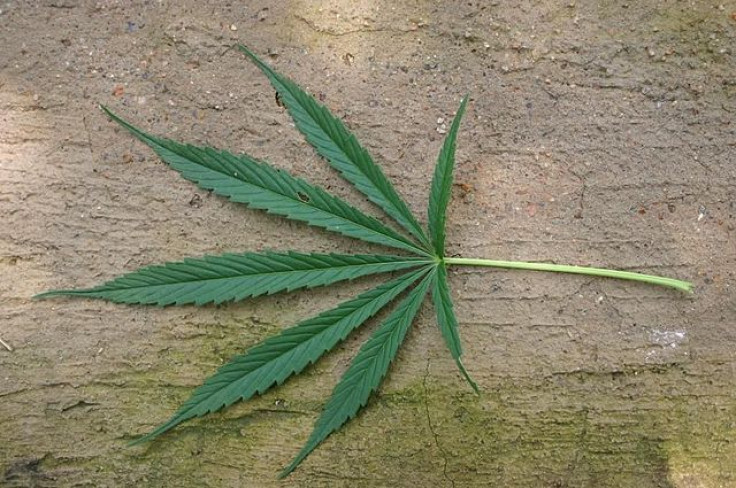Is Medical Marijuana Effective In Treating MS? Animal Studies Prove THC And CBD Target Inflammation

Cannabinoids, which are natural components found within the marijuana plant, are understood to possess medicinal effects even though the exact ways they work is not yet known. In a new study published by the Journal of Neuroimmune Pharmacology, researchers discovered that chemical compounds found in marijuana, namely THC (delta-9-tetrahydrocannabinol) and CBD (cannabidiol), prevented inflammation in the brains and spinal cords of mice with multiple sclerosis-like diseases.
“When used wisely, cannabis has huge potential,” Dr. Ewa Kozela of Tel Aviv University’s Sackler Faculty of Medicine, stated in a press release. “We're just beginning to understand how it works. Our study looks at how compounds isolated from marijuana can be used to regulate inflammation to protect the nervous system and its functions."
THC and CBD
Known to be the principal cause of psychoactive effects, THC is one of many cannabinoids found within the pot plant. THC affects a marijuana user by attaching itself to specific receptors located within the body, particularly in the central nervous system and the immune system. The receptors are found in the limbic system (activity in this region affects memory, cognition, and psychomotor performance), the mesolimbic pathway (this area of the brain is associated with feelings of reward) and also in central nervous system regions associated with pain perception. CBD is another cannabinoid found in the cannabis plant though it works very differently than THC and is known to be primarily non-psychoactive.
Because past studies have shown these two chemical compounds possess anti-inflammatory properties, the researchers of the current study decided to investigate their effects on the immune system. "Inflammation is part of the body's natural immune response, but in cases like MS it gets out of hand," Kozela stated in a press release.
In fact, it is known that the immune system of a person with multiple sclerosis is working overtime and has effectively begun to attack the nervous system. Specifically, this immune response begins to damage or even destroy the myelin sheath, a protective covering wrapped around each nerve cell. When the sheath is damaged in this way, signals which normally flow between the nerve cells slow down or stop completely and this in turn causes a range of debilitating motor, physical, and mental problems for the person suffering from MS.
Medical Marijuana and MS
For this study, the researchers isolated immune cells from paralyzed mice and treated them with either CBD or THC. In both instances, immune cells treated with either CBD or THC began to produce fewer inflammatory molecules, including one called interleukin 17, or IL-17, which is extremely harmful to nerve cells and their myelin sheaths. IL-17 is also strongly associated with MS. Both CBD and THC seemed to inhibit production of IL-17 and so also seemed to restrict its ability to reach and damage the brain and spinal cord. Additionally, the researchers found that the cannabinoids seemed to boost expression of cytokine IL-10, which is an immunoregulator that acts to slow inflammatory processes. The researchers noted that much more research is needed to prove the effectiveness of cannabinoids in treating MS in humans.
Recent studies have offered a mixed bag of results. For instance, the recent CUPID (Cannabinoid Use in Progressive Inflammatory brain Disease) study conducted across the UK resulted in disappointment; researchers found no evidence to support hopes that THC could slow the progression of MS. That said, some patients involved in the study maintain THC is effective when prescribed for treating symptoms, including pain and muscle stiffness. Other studies suggest the same. For example, authors of a recent study published in the Canadian Medical Association Journal found that cannabis, when smoked, helped to reduce both symptoms and pain for participants with spasticity.
Sources: Kozela E, Juknat A, Kaushansky N, et al. Cannabinoids Decrease the Th17 Inflammatory Autoimmune Phenotype. Journal of Neuroimmune Pharmacology. 2013
Corey-Bloom J, Wolfson T, Gamst A, et al. Smoked cannabis for spasticity in multiple sclerosis: a randomized, placebo-controlled trial. Canadian Medical Association Journal. 2012.



























